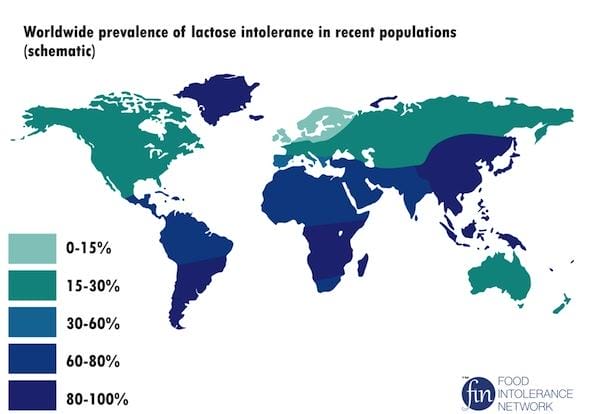The question of why some people can drink milk and some can’t has been up for fascinating debate among scientists and anthropologists. Milk contains a sugar called lactose, which humans cannot digest if they do not possess the enzyme lactase.
However, from a purely evolutionary point of view, adult humans should not even be lactose tolerant — almost all adult mammals lose the ability to digest lactose past infancy. Why are humans different? Some anthropologists currently subscribe to the Cultural-Historical Hypothesis to explain lactose tolerance/intolerance among humans. This hypothesis holds that certain populations began domesticating (and subsequently dairying) livestock about 9,000 years ago. This pastoralism led to an abundance of available milk, and, over time, due to mutations and natural selection, these populations began selecting for lactose tolerance.
The ability to consume milk in adulthood (conferred from a mutation allowing the digestion of lactose) may have been viewed as genetically advantageous. Everyone wants the cool guy in the village who can drink milk when everyone else can’t, right? Meanwhile, in parts of the world where livestock were not dairied extensively, human populations remained intolerant to lactose. However, recent research indicates that lactose tolerance isn’t even genetically advantageous. Drinking milk may not be as cool as we originally thought.
To get occasional notifications when we write blog posts, sign up for our email list.




